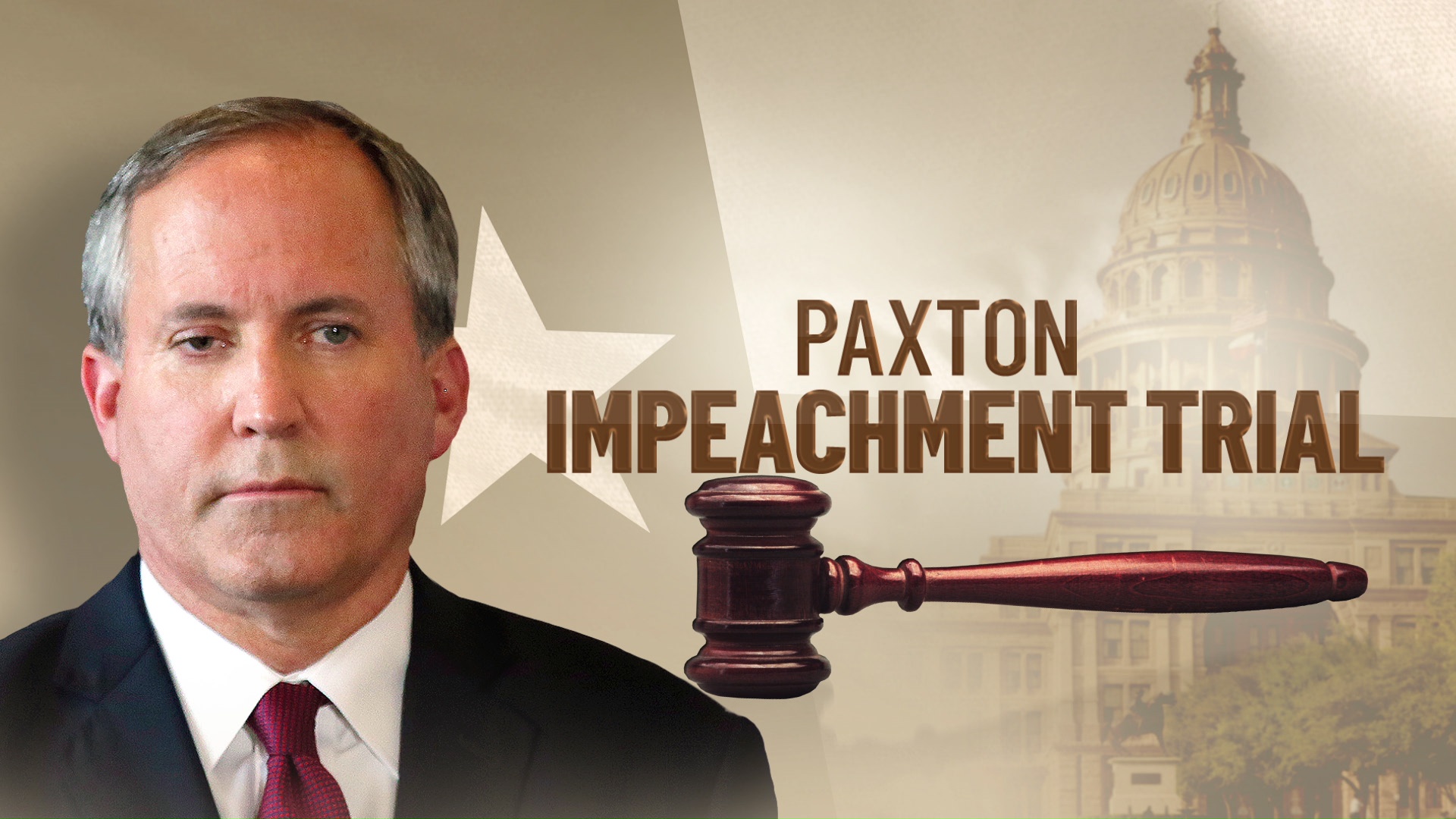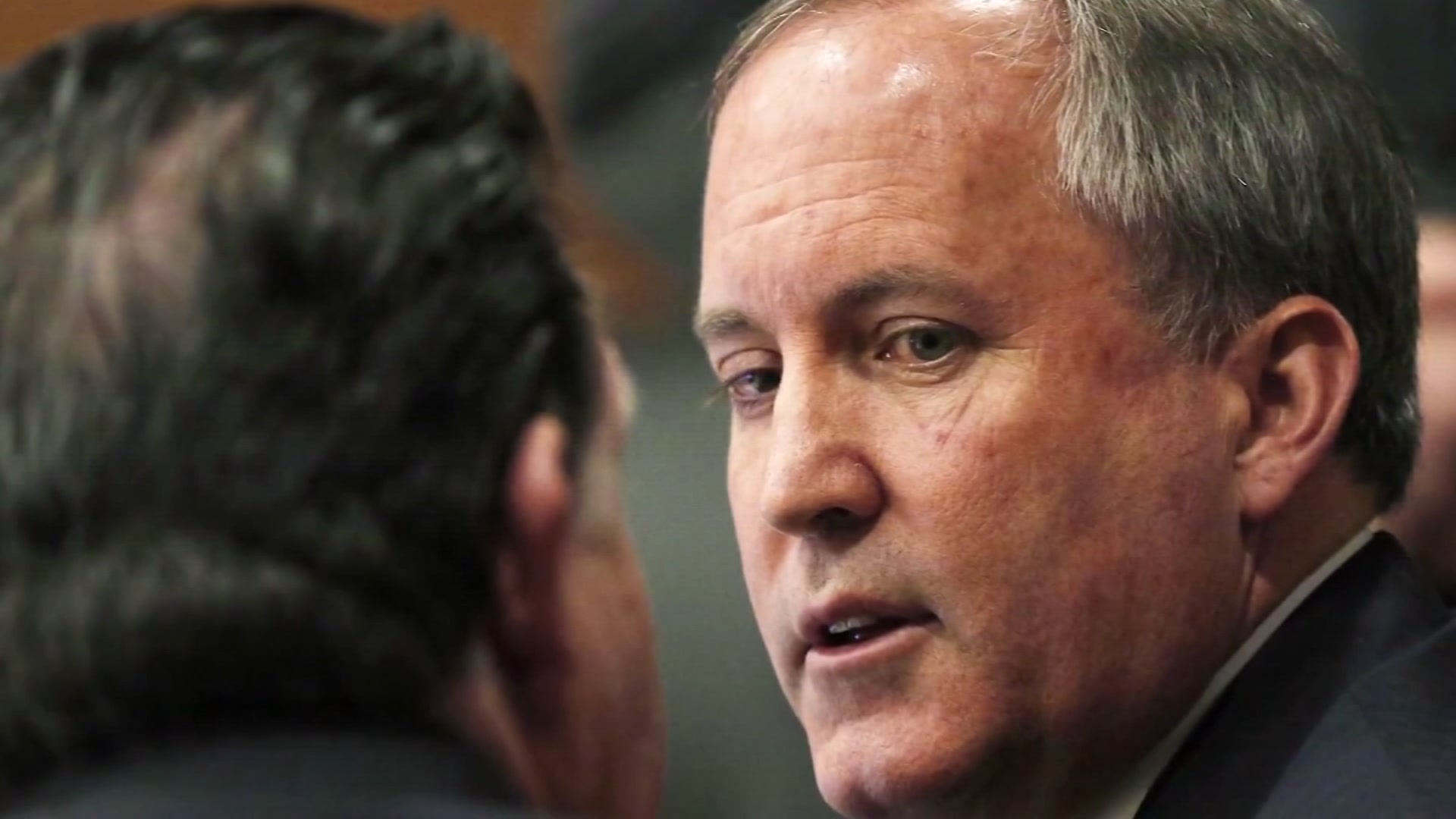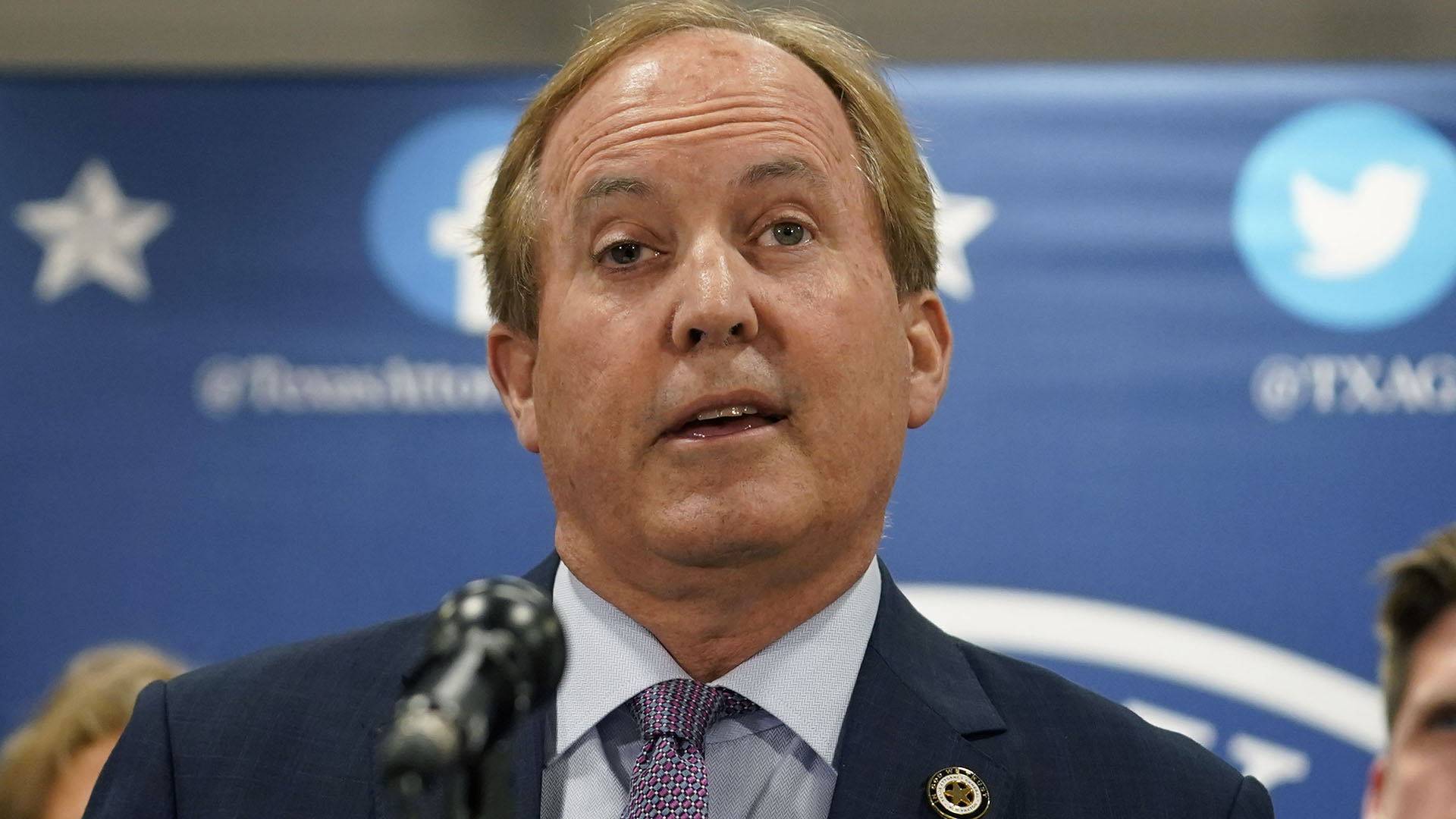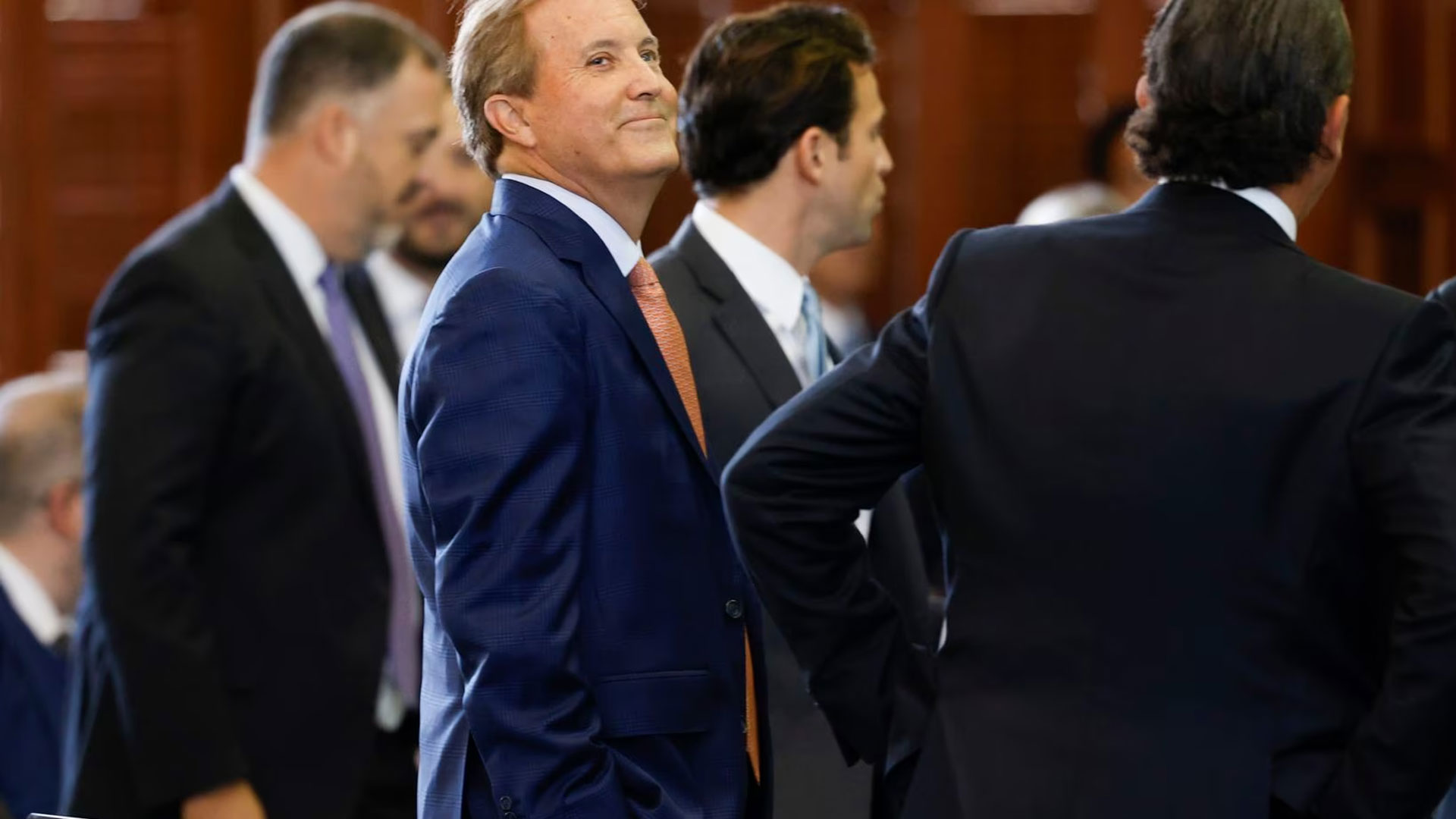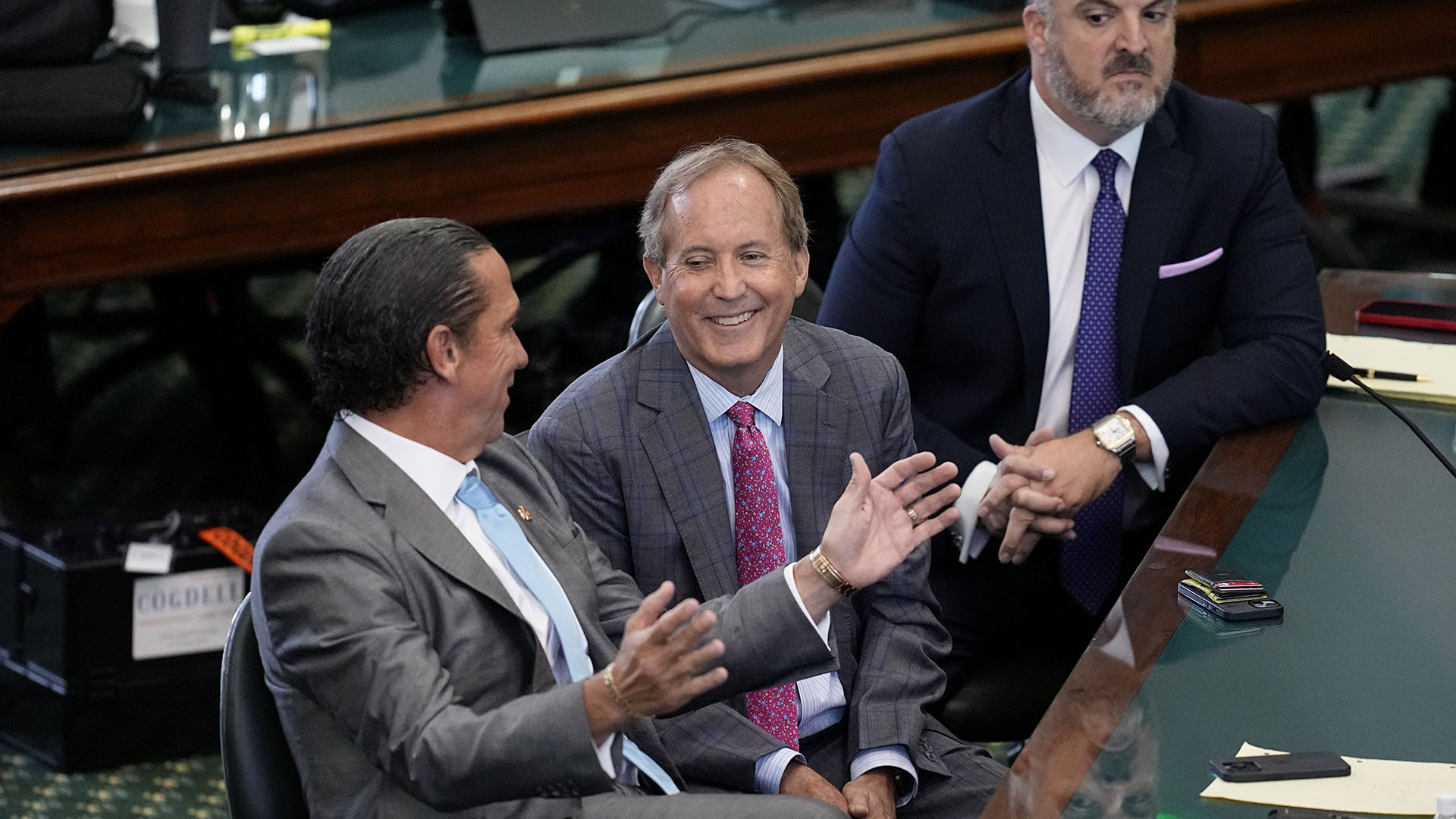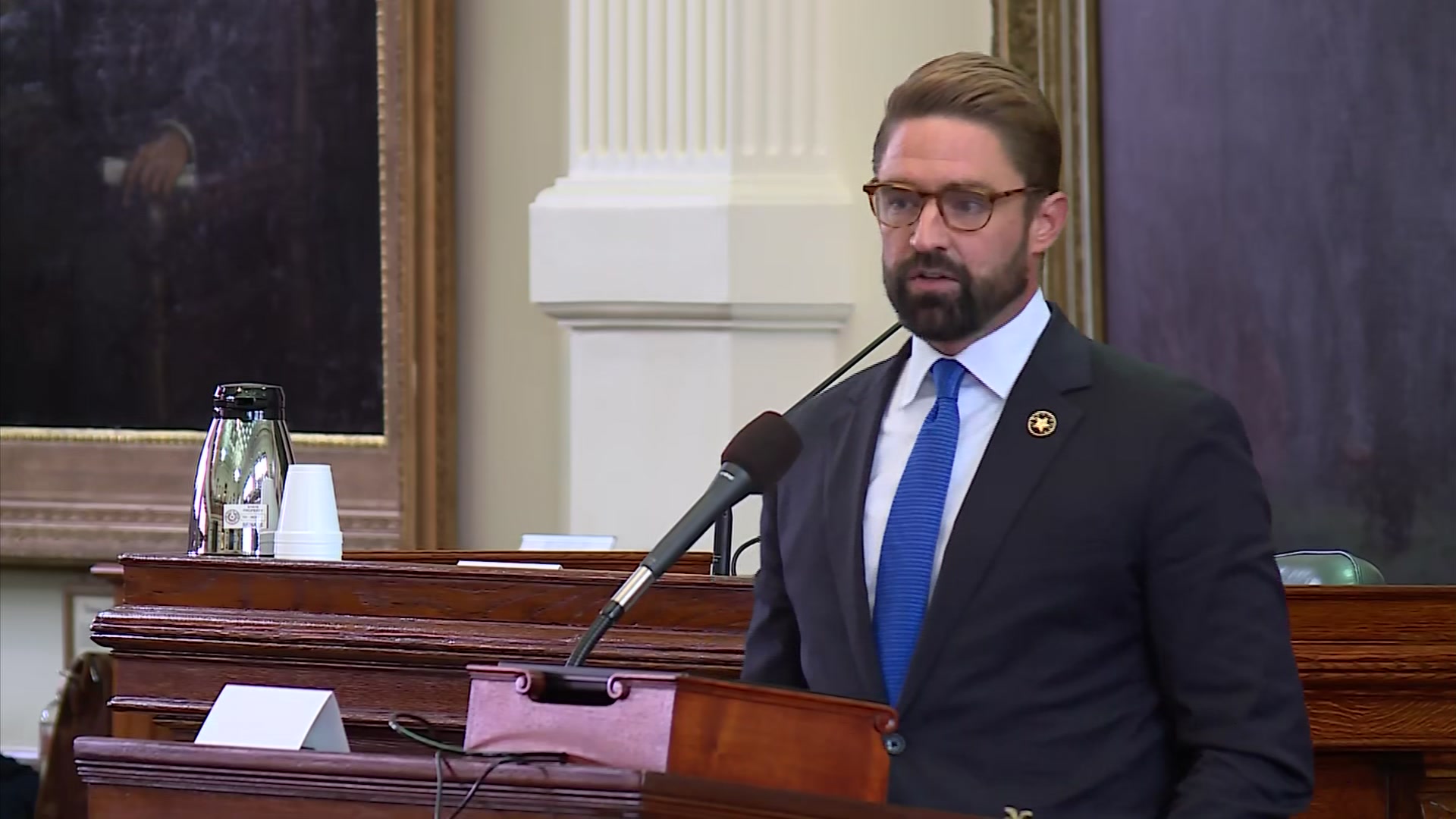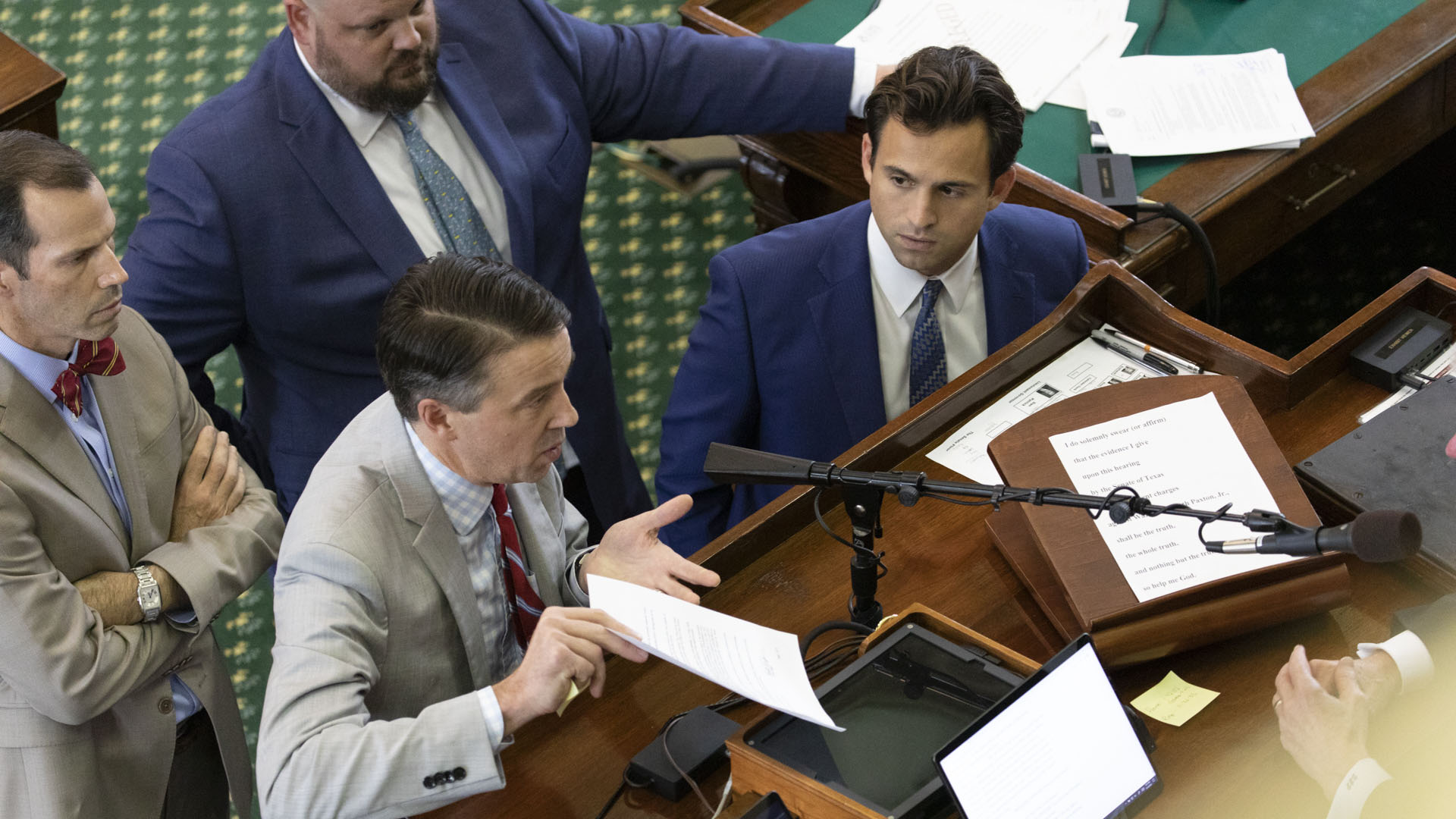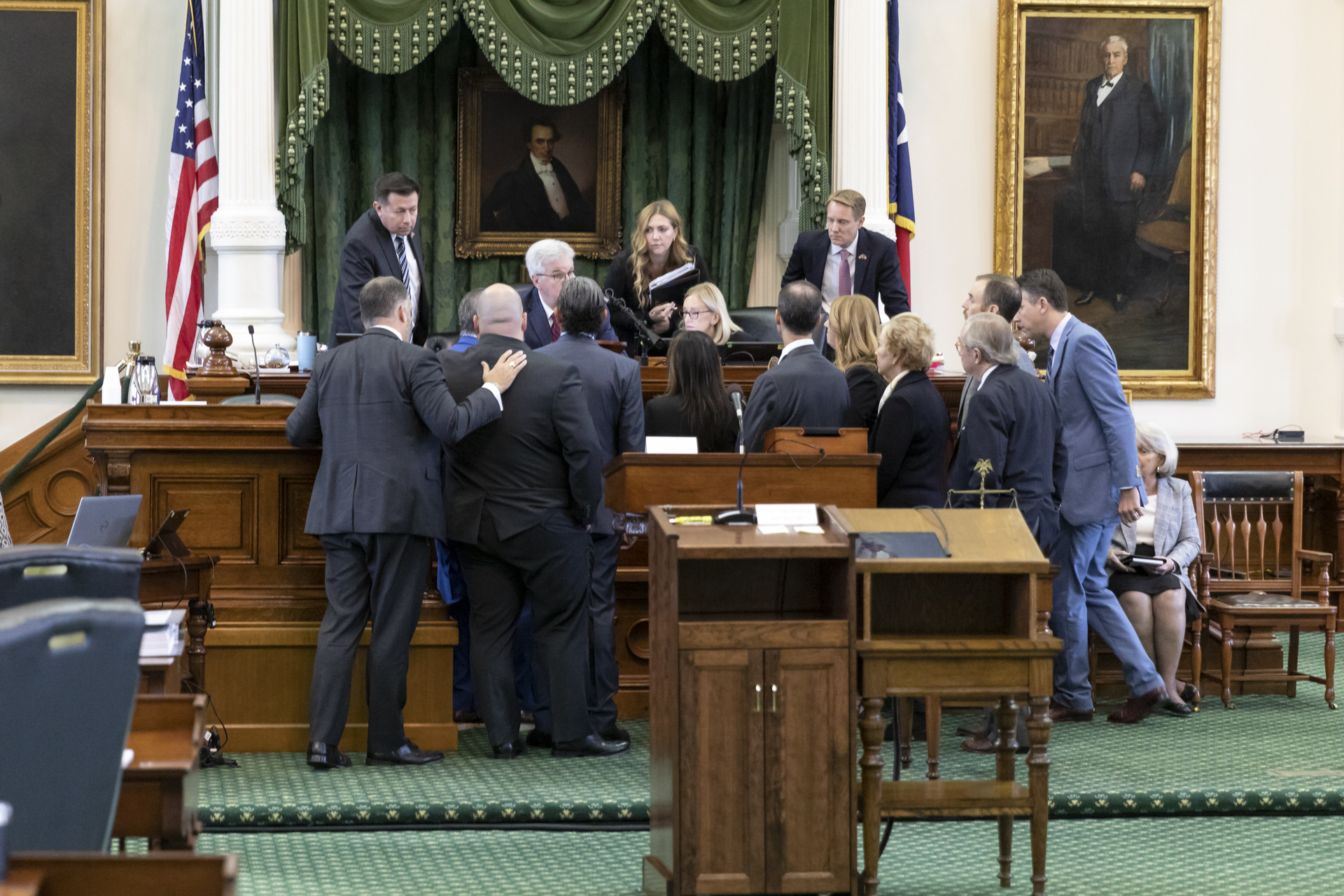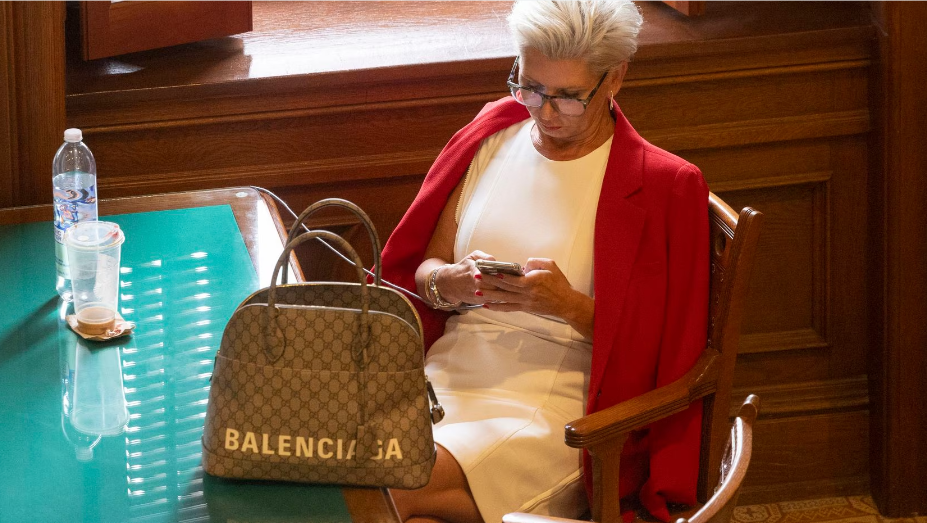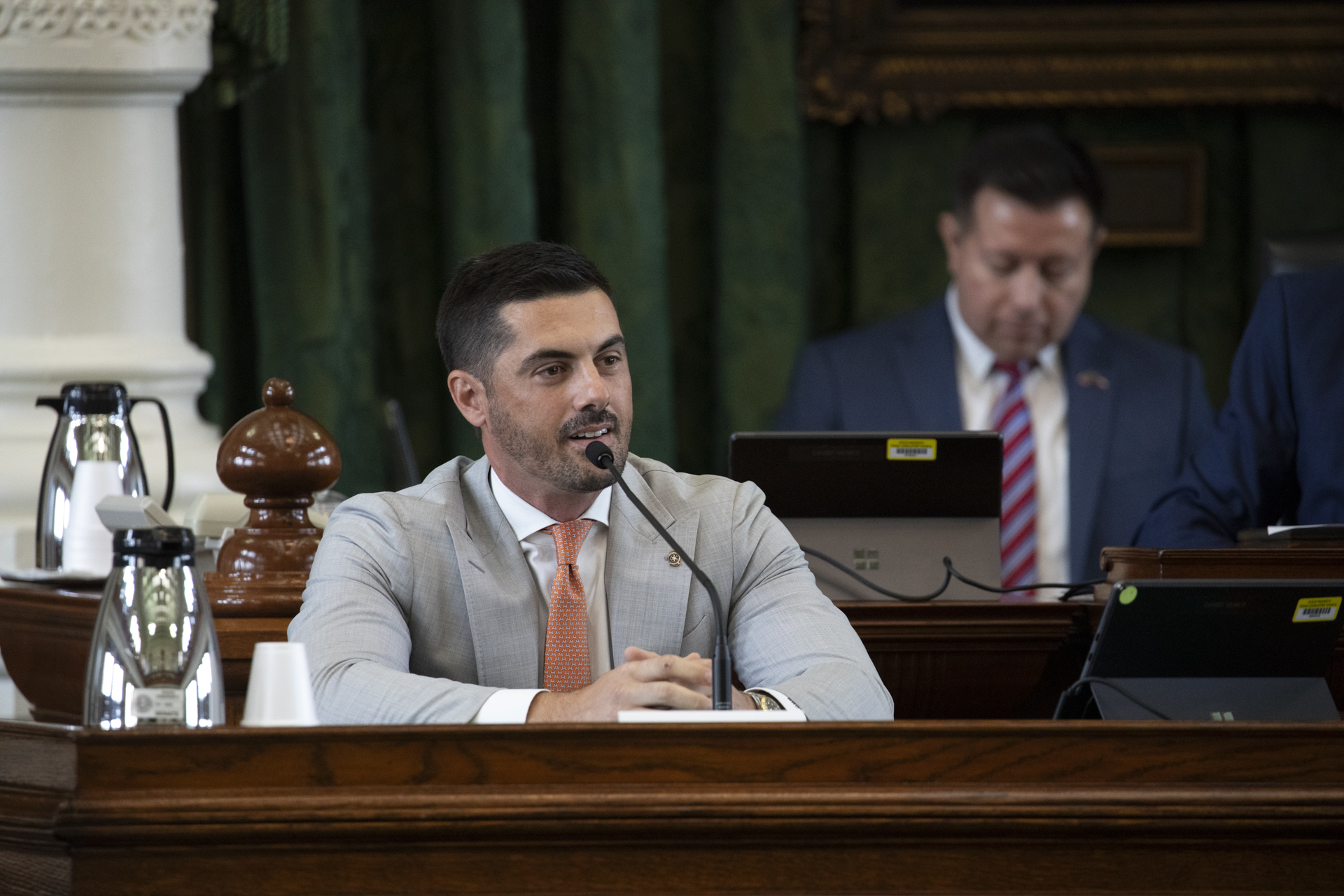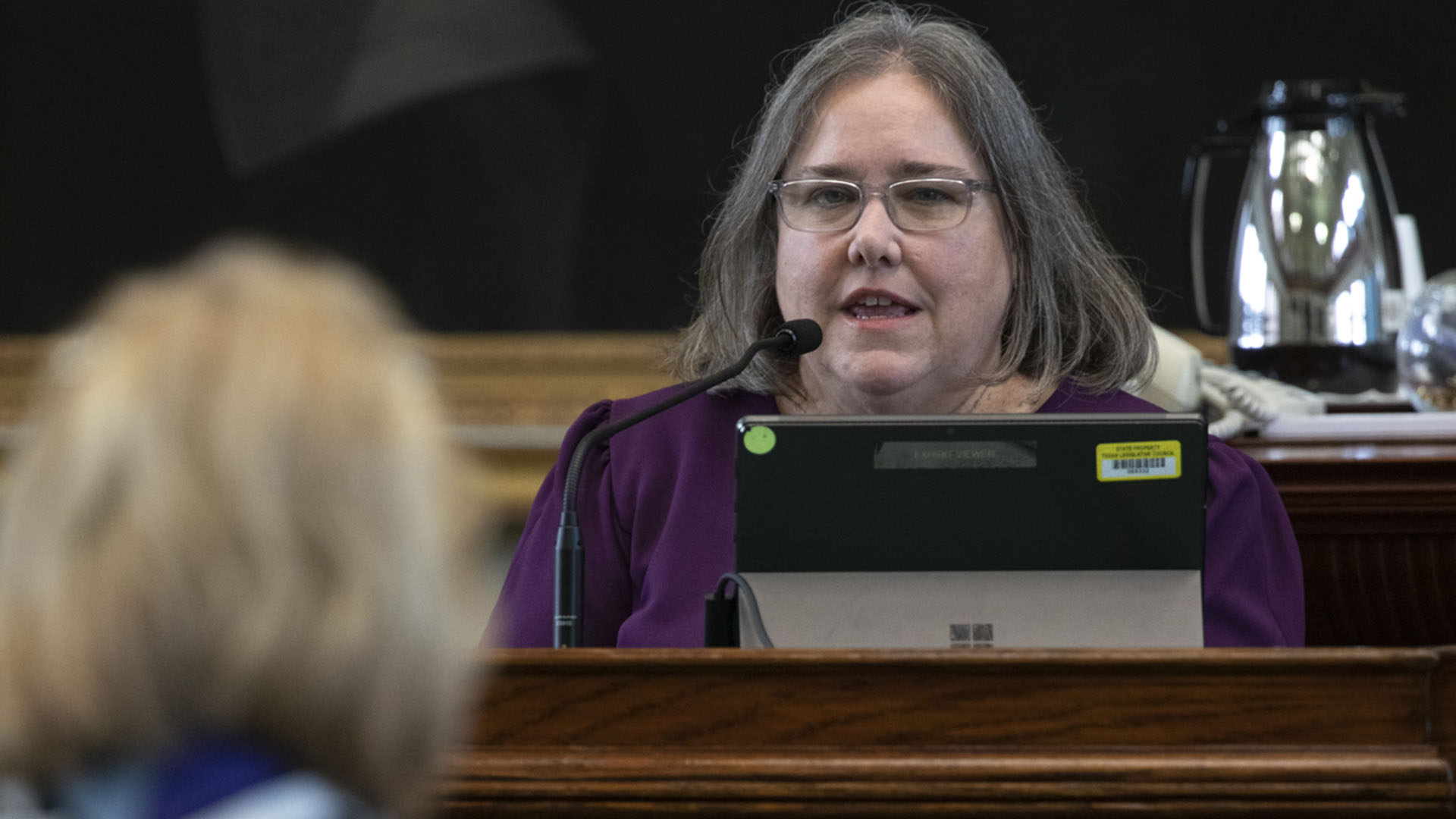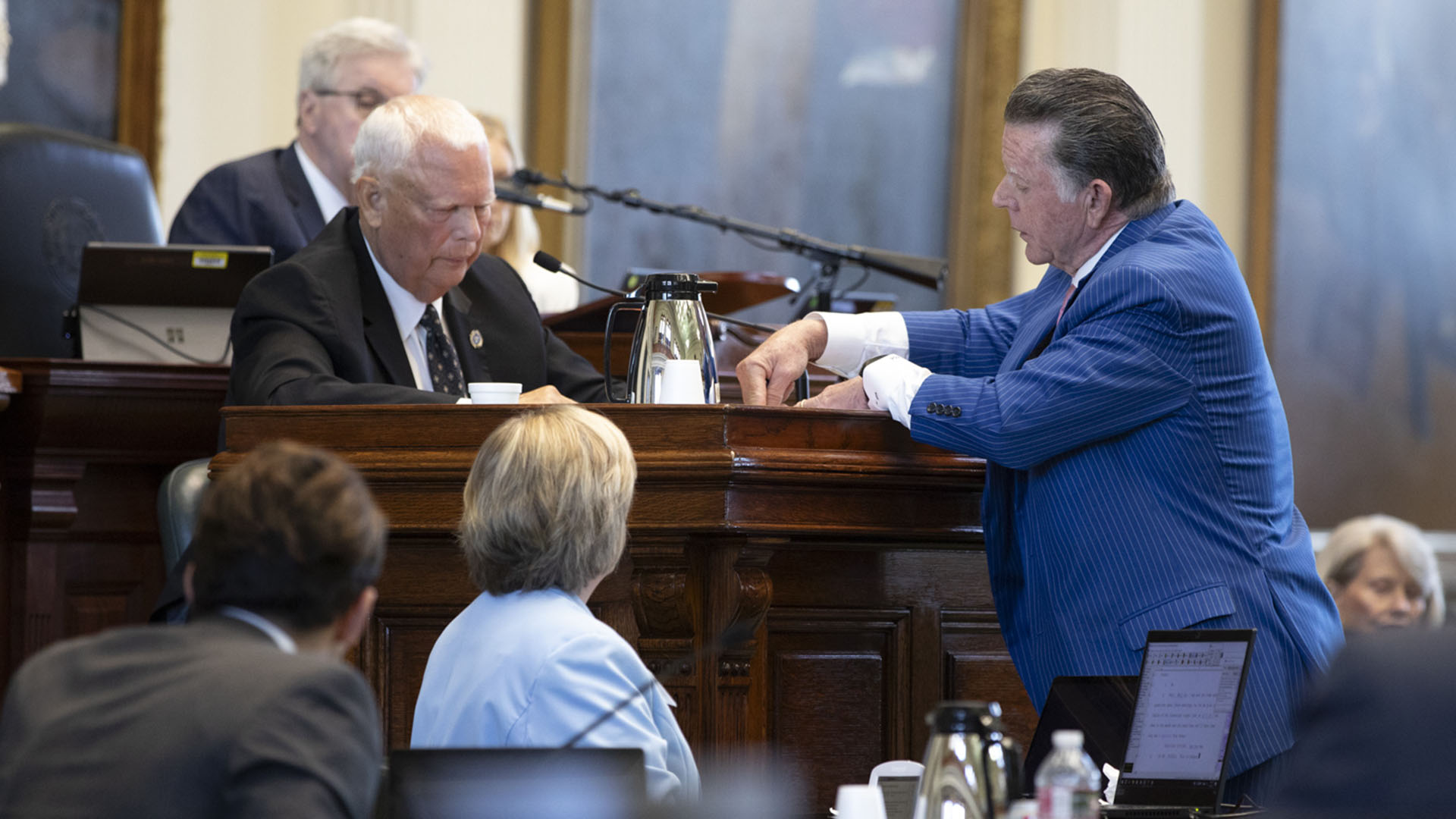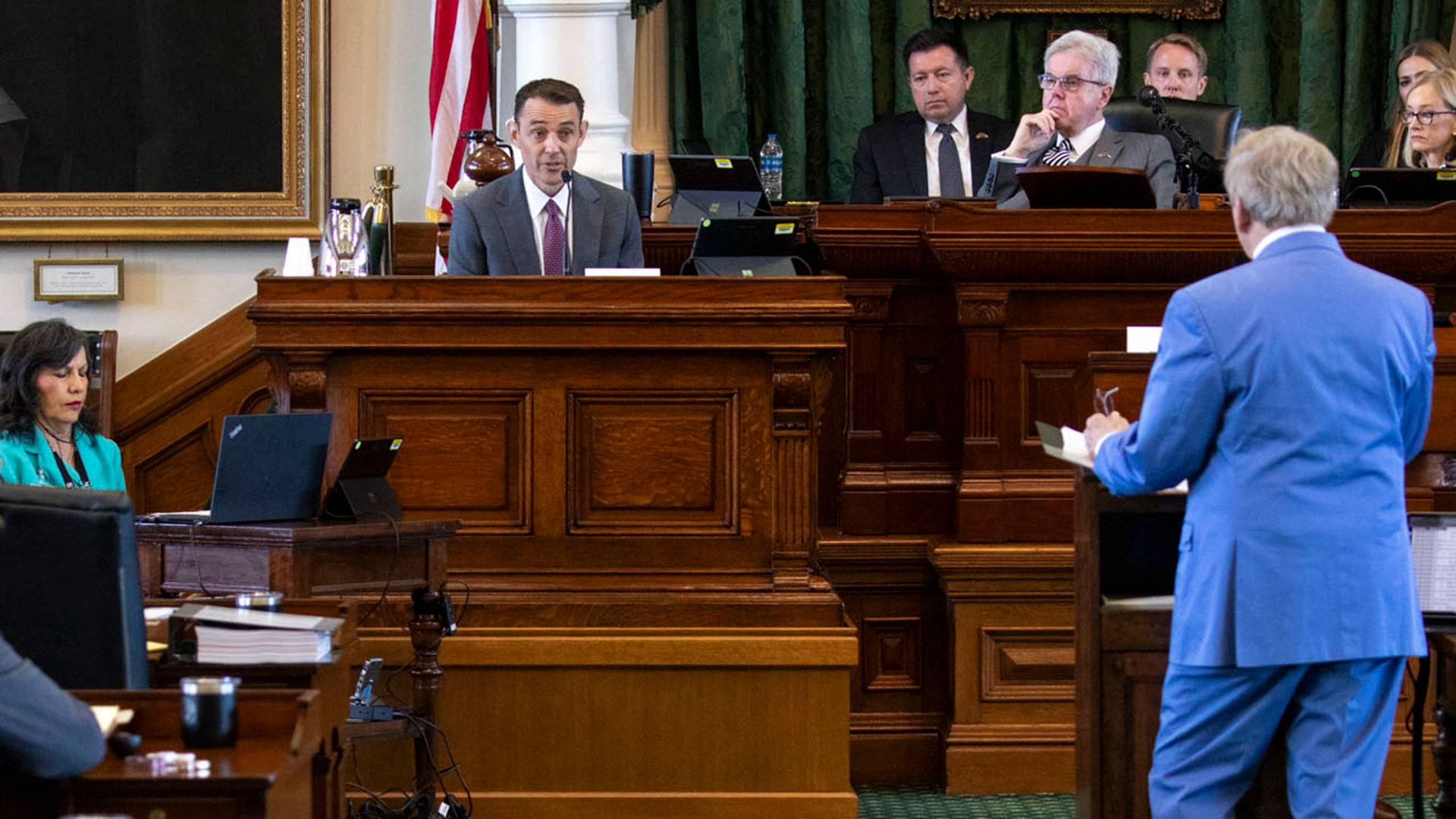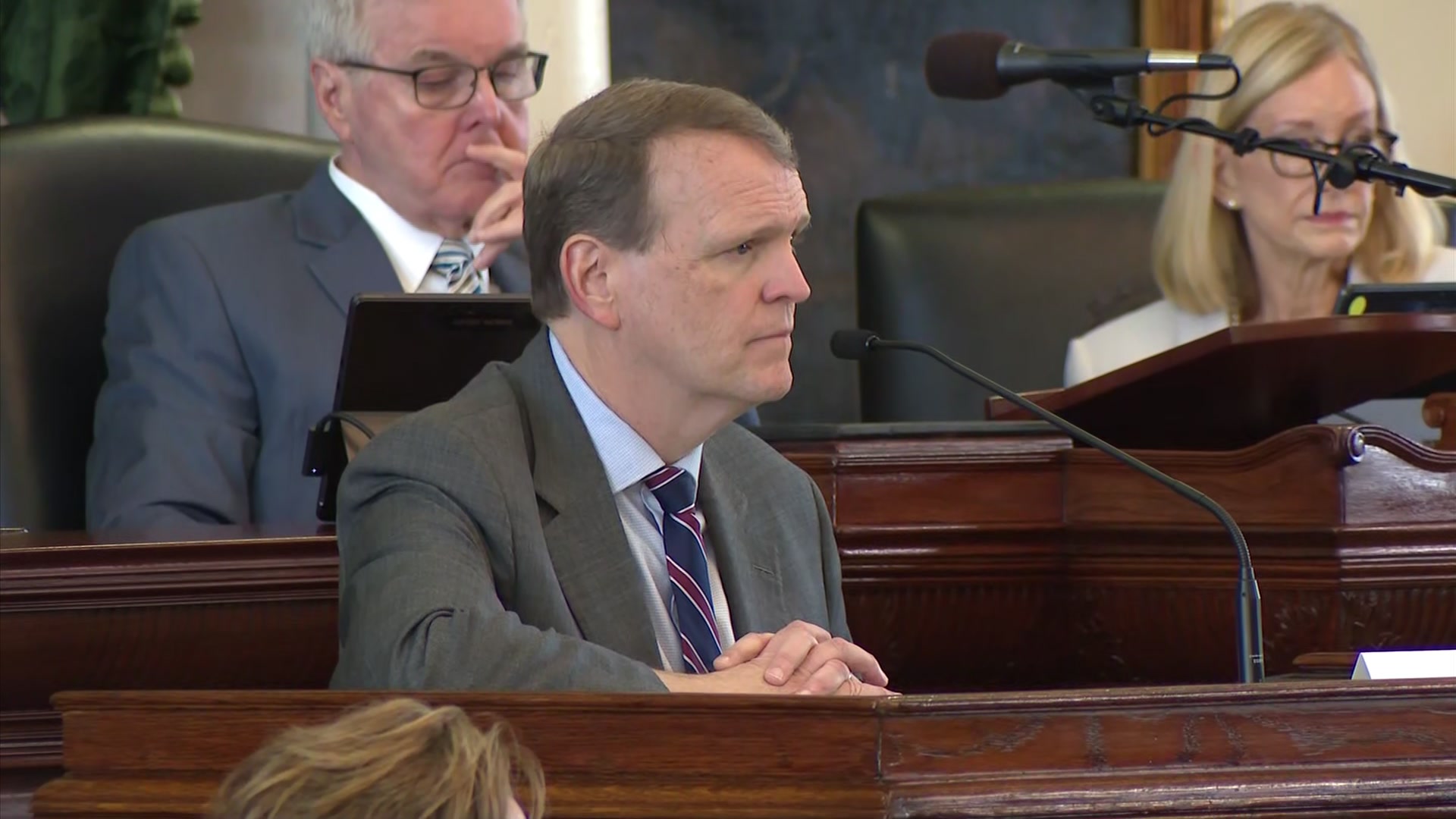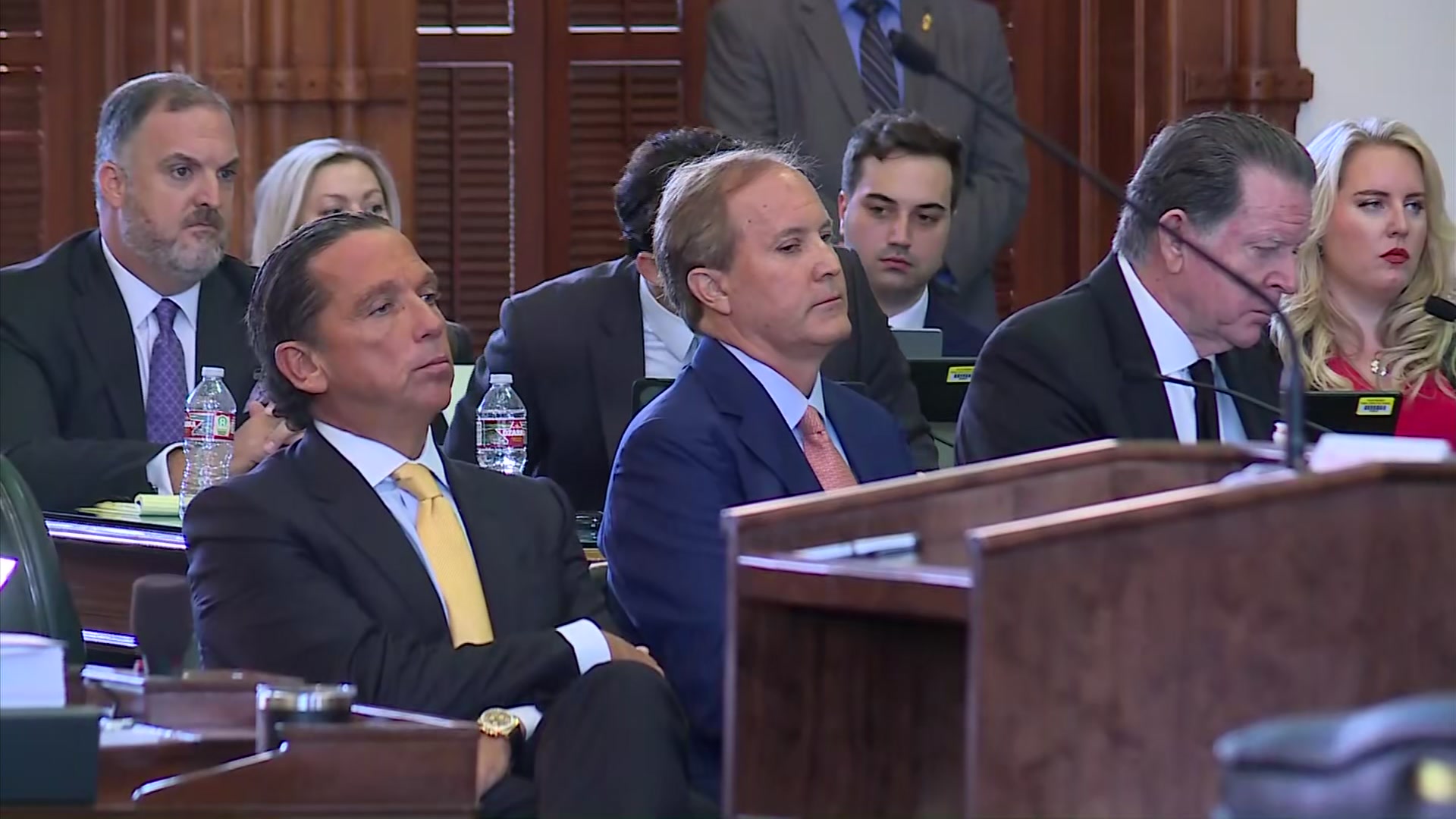Day 1 of Ken Paxton's impeachment trial is in the books, with the suspended Texas Attorney General leaving the hearing after pleading not guilty to 16 articles of impeachment.
The Republican-led Texas House of Representatives voted overwhelmingly in May to impeach Paxton, largely based on his former deputies' claims that he used his power to help a wealthy donor who reciprocated with favors including hiring a woman with whom Paxton had an extramarital affair. The 20 articles of impeachment brought forth by the Texas House include allegations of abuse of public trust, unfitness for office and bribery.
The Texas Senate is holding four of the articles in abeyance because they are largely related to the 2015 criminal charges where Paxton has been accused of felony securities fraud. Paxton has pleaded not guilty in that case but so far there has been no trial.
In the impeachment trial, Texas Lt. Gov. Dan Patrick will serve as the judge and the Texas Senate will serve as jurors.
Get top local stories in DFW delivered to you every morning. >Sign up for NBC DFW's News Headlines newsletter.
The hearing began Tuesday morning with the swearing-in of Dan Patrick, Justice Lana Myers, members of the Texas Senate, court clerks, and officers of the court. Following opening remarks and introductions, at 9:23 a.m. Patrick began the arduous process of going through 24 pretrial motions to dismiss some or all of the articles of impeachment. The Texas Senate voted on 16 of the motions while Patrick voted on the remaining eight.
Shortly before noon, Paxton was asked to stand as the articles of impeachment against him were read. For each one, his attorney Tony Buzbee vehemently denied the allegations while asserting the attorney general was "not guilty." Prosecutors objected to Buzbee's added comments, saying he was already delivering a speech when he should simply be saying either "guilty" or "not guilty." Patrick agreed and limited what Buzbee could say while making the plea.
After a lunch recess, the trial resumed at 1 p.m. with opening statements. Ken Paxton was not present in court after the recess. Prosecutor Rusty Hardin said Paxton should be compelled to be present and Dan Patrick agreed he was supposed to be present throughout the trial, but later clarified he was only required to be in court part of the day Tuesday.
Both sides presented opening arguments Tuesday afternoon. Each side was given one hour for opening remarks and any time left over would be carried over to their presentation time. The prosecution was brief, only going 17 minutes, and carried over 42 minutes. The defense used all but one minute of their time.
Only one witness was called Tuesday afternoon before an objection on privileged information derailed the afternoon's proceedings. As prosecutor Rusty Hardin moved to discuss an item in evidence the defense objected, saying it was privileged communication and labeled as such on the document. Hardin countered, saying the document was the defense's exhibit that they agreed to pre-admit and that he was offering an exhibit that was already in evidence. Defense attorneys Tony Buzbee and Dan Cogdell said they had exhibits on their list that they weren't offering and reiterated they didn't intend to offer all of their exhibits to the court and that some were marked for identification only.
"I think we may be raising gamesmanship to a new level. The fact is, it is their exhibit. They asked if we would agree to pre-admit. We agreed to pre-admit. That put it in evidence," Hardin said.
Cogdell replied again, saying the document was never offered to the court.
Patrick called a recess to sort out the privilege issue before ultimately adjourning for the day, vowing to solve the privilege issue before resuming the trial Wednesday morning.
DAY 1 UPDATES
4:56 p.m., Patrick said they were going to adjourn for the day and settle the privileged issue before the trial resumed at 9 a.m. Wednesday morning.
4:30 p.m., Patrick called for a short recess.
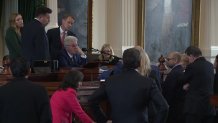
4:25 p.m., Hardin moved to discuss an item in evidence, 161, which the defense objected to saying it was privileged communication and labeled as such and the only person who could waive that privilege was Paxton. Hardin replied, saying it was the defense's exhibit that they agreed to pre-admit and that he was offering an exhibit that was already in evidence. Buzbee said he was confused and said 161 didn't match their exhibit list. Hardin said the evidence was AG-161, which came from the defense. Buzbee said they had exhibits on their list that they weren't offering and Cogdell reiterated they didn't intend to offer all of their exhibits and that some were marked for identification only. "I think we may be raising gamesmanship to a new level. The fact is, it is their exhibit. They asked if we would agree to pre-admit. We agreed to pre-admit. That put it in evidence," Hardin said. Cogdell said it was never offered to the court.
4:16 p.m., Mateer said Paxton was ultimately persuaded not to go to the Travis County hearing and that he called a meeting where Paxton was urged to not have any further communication with Paul. Mateer said Paxton agreed to have no further contact with Paul.
4:09 p.m., Mateer said he'd learned of a hearing involving Paul where Paxton was going to appear. He said after learning of the hearing, he was concerned the attorney general was going to appear in Travis County District Court and argue a motion on behalf of the Office of the Attorney General when they have 800 capable attorneys at the office. "At the time I couldn't remember a sitting attorney general going into a district court to argue anything," Mateer said. "General Paxton has some wonderful qualities, but he is not a litigator. And to think that he would go into court arguing a motion just made absolutely no sense and especially on a matter -- I mean, this isn't the Google case. This wasn't a Supreme Court argument. With all respect to those who practice in Travis County District Court, it was Travis County District Court."
4:03 p.m., Mateer discussed an email he received from Nate Paul that he said came out of the blue. He said Paul was asking to meet in person and Mateer said he'd never met or talked to Paul on the phone. He said he learned Paul and Paxton had a relationship but wasn't sure about the details. He said he knew there was litigation involving Paul and said he was unavailable to meet.
3:23 p.m., Hardin asked Mateer if he was a RINO. Mateer said he was "far from right of center" and had been nominated by former President Trump to be a federal judge. Mateer said there was opposition to his nomination from liberal Republicans and alt-Democrats. Hardin asked Mateer if he'd heard the suggestion that the impeachment was the product of RINOs, liberals, Democrats and people opposed to true conservative views. Mateer said he'd heard that characterization but that it didn't describe the men and women he worked with at the AG's office.
3:20 p.m., prosecutor Rusty Hardin called the first witness, Jeff Mateer, of Rockwall. Mateer is a lawyer who worked as the First Assistant Attorney General of Texas under Ken Paxton from 2016-2020. Before working for the Texas AG's office, Mateer said he worked on Capitol Hill for former U.S. Reps Tom Delay and Dick Army. After his time in Washington Mateer said he went to work at a Dallas law firm and later began to volunteer on religious liberty cases. Mateer now works for the conservative nonprofit First Liberty Institute.
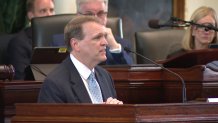
3:16 p.m. Patrick called for Sutton to be brought back into the chamber and read rules around his testimony. Patrick then asked for the first witness to be called.
2:33 p.m., before witnesses were called, Patrick said they needed to deal with a motion regarding attorney Johnny Sutton and then would take a short break until 2:50 p.m.
2:33 p.m., Patrick stated, for the record, prosecutors had 42 minutes and 34 seconds returned to them and the defense had 1 minute and 17 seconds returned to them. Whatever time was not used in opening statements could be added to their presentation time.
2:32 p.m., wrapping up his final minutes of their opening statement, Cogdell reminded the jury they must have reasonable proof beyond a reasonable doubt to convict. "What you cannot do is assume anything. What you must do is look through the viewfinder of 'beyond reasonable doubt.' Again, that is a much different process than what the House did. Is there proof beyond all reasonable doubt for you to convict Ken Paxton and I suggest to you it is crystal clear that there is not evidence beyond a reasonable doubt. I have one simple ask, do the right thing ... and the right thing is to vote not guilty."
2:30 p.m., Cogdell was speaking of Paxton's mindset due to his pending securities fraud case from 2015 when prosecutor Rusty Hardin objected, saying if the four articles of impeachment related to the securities fraud case were not being heard by the Texas Senate then they shouldn't be mentioned in court. Patrick agreed and Cogdell then said Paxton was looking through a different viewfinder due to what he'd experienced for eight years.
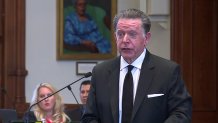
2:07 p.m., Buzbee wrapped up his remarks and handed the microphone off to his colleague, attorney Dan Cogdell. He'll have about 27 minutes to complete his statement.
1:54 p.m., in his opening remarks, Buzbee said they'll show the money trail that shows the Paxtons paid for their home repairs, haggled with their insurance company and received nothing from Nate Paul. He said money from Nate Paul was a political contribution and that "if campaign donations were bribes, everyone in this town would be impeached."
1:45 p.m., Buzbee took early shots at House Speaker Dade Phelan, saying he was so drunk he could barely hold the House gavel. Buzbee said four days later, Paxton called for Phelan to resign. Buzbee said the very next day, the committee hurriedly met and recommended impeachment the day after that. The impeachment, Buzbee said, "was fueled by a powerful lobbyist and led by a drunken speaker seeking political vengeance."
1:34 p.m., Buzbee began his opening remarks. He has 60 minutes to complete his opening statement.
1:33 p.m., Patrick asked if the defense wished to make an opening statement. Defense attorney Tony Buzbee asked if he had 15 minutes and he was told no, that it begins immediately.
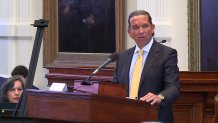
1:32 p.m., Murr wrapped up his opening statement, saying, "As chair, I resolutely give this statement with the support of and on behalf of the board of managers and on behalf of the Texas House. You all provided us with an hour to make an opening statement. But we prefer to yield back the rest of that time to the most important folks that will show up in this room -- the witnesses. The same witnesses that Mr. Paxton has been so desperate to discredit and intimidate and to silence. We are honored to be able to give them their day in this honored and rare court where we simply seek justice on behalf of the people of Texas. Thank you, Mr. President."
1:16 p.m., Texas Rep. Andrew Murr (R-Junction), the chair of the House investigating committee and the impeachment manager, began opening remarks for the prosecution. He had 60 minutes to complete his opening statement.
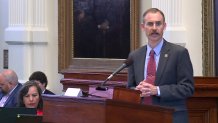
1:15 p.m., Patrick said he would rule on attorney-client privilege motions as they come up. He also reminded the jurors that statements made during opening remarks are not evidence but rather an outline of what they plan to prove.
1:07 p.m., Patrick said Paxton was supposed to be present throughout the duration of the trial. Then later clarified that he was required to be present on Tuesday, but not all day.
1:06 p.m., Hardin also said there was a motion on the attorney-client privilege and that if the court wanted to hear arguments on it they were ready to engage in that discussion.
1:06 p.m., prosecutor Rusty Hardin asked for Paxton's absence to be put on the record, saying if the case is being treated analogously to a criminal case he should be in court.
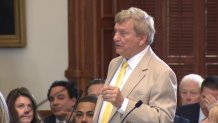
1:04 p.m., lawyers for Ken Paxton asked for a ruling from the court as to whether the attorney general had attorney-client privileges when discussing his case with counselors.
1 p.m., the recess ends and Ken Paxton is not in the Senate chamber.
12:02 p.m., Patrick calls for lunch recess. Court of impeachment will resume at 1 p.m. with opening statements.
11:58 a.m., Patrick calls for witnesses to be brought into the chamber to be sworn in.
11:47 a.m., Ken Paxton stands and the court clerk reads the articles of impeachment. For each of the 20 articles of impeachment, Paxton's council said the allegation was false and that he was "not guilty."
11:38 a.m., Patrick resumes the court of impeachment. Tells the members the trial is expected to begin each day at 9 a.m. They will take lunch from 12:15 p.m. until 1 p.m. and will resume the trial until about 6 p.m. The court will be in session Monday through Friday and they may conduct hearings on Saturdays beginning Sept. 16.
11:20 a.m., Patrick calls a recess for 10 minutes.
11:18 a.m., Patrick considers Motion 5, entitled "Challenging jurors for cause." Patrick said the motion was denied.
11:16 a.m., Patrick considers Motion 4, "Motion to preclude Paxton's testimony." Patrick said judgments of the court in impeachments are acquittal or conviction. Because the impeachment has been compared to a criminal trial, Patrick said the same rules apply in this hearing, granted the motion and said Paxton could not be compelled to testify.
11:16 a.m., Patrick considers Motion 1, entitled "Motion for pretrial scheduling order or pretrial conference." Patrick said the motion was addressed by his July 12 discovery order and his Aug. 9 exhibit production order and no further action was needed.
11:15 a.m., Patrick considers Motion 3, entitled "Request to clarify July 12 discovery order" or alternatively "Motion for protective order regarding documents produced to Warren Kenneth Paxton Jr. pursuant to the Senate July 12 discovery order." Patrick said the motion was addressed by July 20 reiteration of the order and no further action was necessary.
11:15 a.m., Patrick considers Motion 23, entitled "Motion for notice of Brady material and notice of trial exhibits." The motion was addressed by the July 12 discovery order and the Aug. 9 exhibit production order. No further action was needed.
11:15 a.m., Patrick considers Motion 12, entitled "Motion to exclude inadmissible evidence," addressing the issue of political contributions. Patrick said because the information is readily available from the Texas Ethics Commission for everyone to read, the motion was denied.
11:14 a.m., Patrick considers Motion 24, entitled "Motion to compel discovery from House managers." Patrick said no further action on the motion would be taken and that the motion was addressed by his discovery order on July 12 and an exhibit production order on Aug. 9.
11:11 a.m., Patrick considers Motion 2, entitled "Motion to clarify certain Senate rules governing the impeachment trial." Both sides agreed on 24 hours to present evidence which includes direct cross-examination, redirect and recross. Anytime a party questions a witness, the clock continues to run. Each side has one hour for opening statements, one hour for rebuttal and one hour for closing. If the full hour is not used for opening, the remaining time can be added to the 24 hours for the presentation of evidence.
11:06 a.m., Motion 10, submitted by respondent Attorney General Ken Paxton, the motion is entitled, "Motion to exclude evidence gathered in violation of the law." With a vote of 22 nays and eight yays, the motion is denied.
11:05 a.m., the Texas Senate has one more motion to consider before Patrick votes on the final eight.
11 a.m. NBC 5's midday report is below.
10:58 a.m., Motion 21, submitted by respondent Attorney General Ken Paxton, the motion is entitled, "Motion to dismiss or to hold in abeyance Article XVI-XX." With a vote of 21 nays and nine yays, the motion is denied.
10:52 a.m., Motion 20, submitted by respondent Attorney General Ken Paxton, the motion is entitled, "Motion to dismiss Article IX and X." With a vote of 24 nays and six yays, the motion is denied.
10:47 a.m., Motion 19, submitted by respondent Attorney General Ken Paxton, the motion is entitled, "Motion to dismiss Article VII and XV." With a vote of 21 nays and nine yays, the motion is denied.
10:42 a.m., Motion 18, submitted by respondent Attorney General Ken Paxton, the motion is entitled, "Motion to dismiss Article VIII." With a vote of 20 nays and 10 yays, the motion is denied. (This is the first motion where Paxton received more than nine yay votes -- if this were the vote on Article VIII it would be enough to avoid conviction).
10:36 a.m., Motion 17, submitted by respondent Attorney General Ken Paxton, the motion is entitled, "Motion to dismiss Article VI." With a vote of 21 nays and nine yays, the motion is denied.
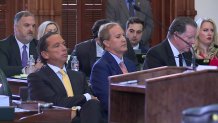
10:30 a.m., Motion 11, submitted by respondent Attorney General Ken Paxton, the motion is entitled, "Motion to dismiss Article V." With a vote of 22 nays and eight yays, the motion is denied.
10:25 a.m., Motion 16, submitted by respondent Attorney General Ken Paxton, the motion is entitled, "Motion to dismiss Article IV." With a vote of 24 nays and six yays, the motion is denied.
10:19 a.m., Motion 15, submitted by respondent Attorney General Ken Paxton, the motion is entitled, "Motion to dismiss Article III." With a vote of 23 nays and seven yays, the motion is denied.
10:14 a.m., Motion 14, submitted by respondent Attorney General Ken Paxton, the motion is entitled, "Motion to dismiss Article II." With a vote of 22 nays and eight yays, the motion is denied.
10:09 a.m., Motion 13, submitted by respondent Attorney General Ken Paxton, the motion is entitled, "Motion to dismiss Article I." With a vote of 22 nays and eight yays, the motion is denied.
10:02 a.m., Motion 7, submitted by respondent Attorney General Ken Paxton, the motion is entitled, "Request for a bill of particulars." With a vote of 24 nays and six yays, the motion was denied.
9:55 a.m., Motion 6, submitted by respondent Attorney General Ken Paxton, the motion is entitled, "Motion to quash articles of impeachment or grant request for a bill of particulars." With a vote of 24 nays and six yays, the motion was denied.
9:49 a.m., Motion 8, submitted by respondent Attorney General Ken Paxton, the motion is entitled, "Motion to dismiss articles of impeachment I-VII and IX-XX." With a vote of 22 nays and eight yays, the motion was denied.
9:42 a.m., Motion 9, submitted by respondent Attorney General Ken Paxton, the motion is entitled, "Motion to exclude evidence of any alleged conduct that occurred prior to Jan. 20, 2023." With a vote of 22 nays and eight yays, the motion was denied.
9:35 a.m., Motion 22 submitted by respondent Attorney General Ken Paxton, the motion is entitled, "No evidence motion, summary judgment on all articles of impeachment." With a vote of 24 nays and six yays, the motion was denied.
9:32 a.m., Patrick says they'll begin with addressing 24 pre-trial motions submitted by the parties. The members of the Senate will vote on 16 dispositive motions, which are motions asking the court to dispose of the claim without further proceedings. Patrick said he'll vote on the remaining eight.
9:31 a.m., Patrick's opening remarks to those in attendance, the introduction of Justice Lana Myers.
9:29 a.m., Patrick announced the attorney general's counsel.
9:27 a.m., Patrick announced the counselors for the house of managers.
9:26 a.m., Patrick swore in the court clerks and other officers of the court.
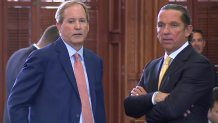
9:05 a.m., Patrick began swearing in members of the Senate with Sen. Cesar Blanco (D-Dist. 29). Each member was sworn in individually and asked to affirm they would impartially try Warren Kenneth Paxton Jr., on the impeachment charges submitted by the Texas House and would render a verdict in accordance with the law and evidence.
Sen. Angela Paxton (R-McKinney), the wife of the attorney general, is in the Texas Senate chamber but is not permitted to vote in the hearing and was not sworn in.
9:04 a.m., Patrick said due to the significance of the occasion, he has brought out the Sam Houston Bible for the swearing-in ceremonies. According to the Texas judicial branch, the Bible has been used for more than 150 years to inaugurate governors and other elected officials and was believed to have been gifted to the Texas Supreme Court by the former president of the Republic of Texas. Patrick said each member of the Texas Senate will be sworn in individually with the Sam Houston bible.
9:03 a.m., Justice Lana Myers was sworn in. She is a retired justice of the Fifth Court of Appeals of Texas and was appointed by Patrick to assist him in the trial.
9:03 a.m., Lt. Gov. Dan Patrick was sworn in. Patrick will serve as the judge in the impeachment hearing.
Shortly before 8:45 a.m., Ken Paxton entered the Senate chamber with his defense attorneys.
KEN PAXTON IMPEACHMENT TRIAL
What to know about the historic impeachment of Texas Attorney General Ken Paxton.
THE LATEST IN THE KEN PAXTON IMPEACHMENT TRIAL
Below are some of the headlines from the historic nine-day impeachment trial.

